July’s Patient of the Month is a bit more punk rock than most of the species we treat, thanks to their crazy backstory and heavy metal look! 🤘👨🎤 Meet Chimney Swift 24-729.
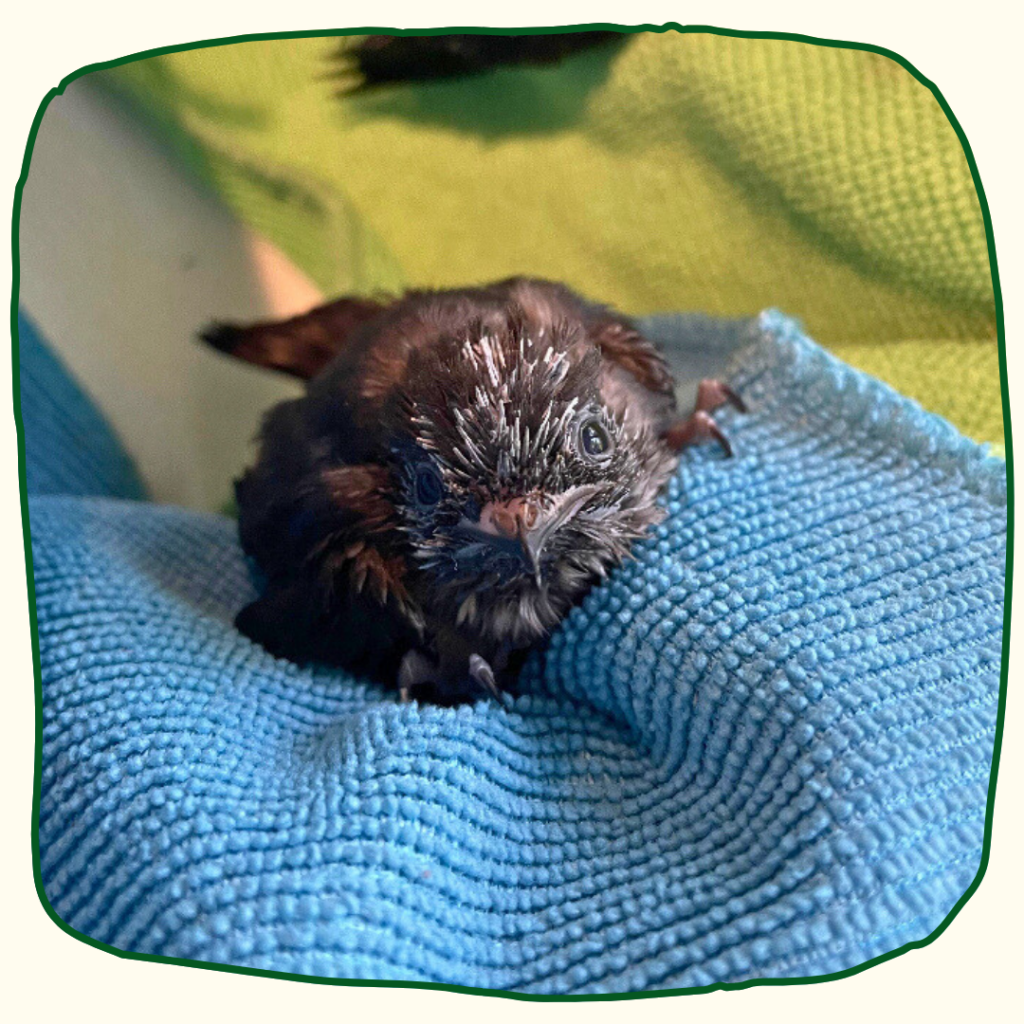
Being later season nesters, Chimney Swifts are often the last big wave of orphaned songbirds we get before the baby bird season begins to taper out. Usually, these orphaned birds come into care because a rescuer found babies amidst a scattered, broken nest in their fireplace and was unable to re-nest them way back up into the chimney. This particular patient and her four siblings took that up a notch, though!
24-729 came to the Sanctuary because a determined house cat climbed up the chimney and killed the baby’s parents, ultimately knocking the nest down into the fireplace. Luckily, the homeowner was able to intervene to save the babies – and hopefully, that curious cat will be kept far away from the chittering chimney during future nesting seasons. Our cats and dogs are often more ambitious than we think they’ll be! 🤣
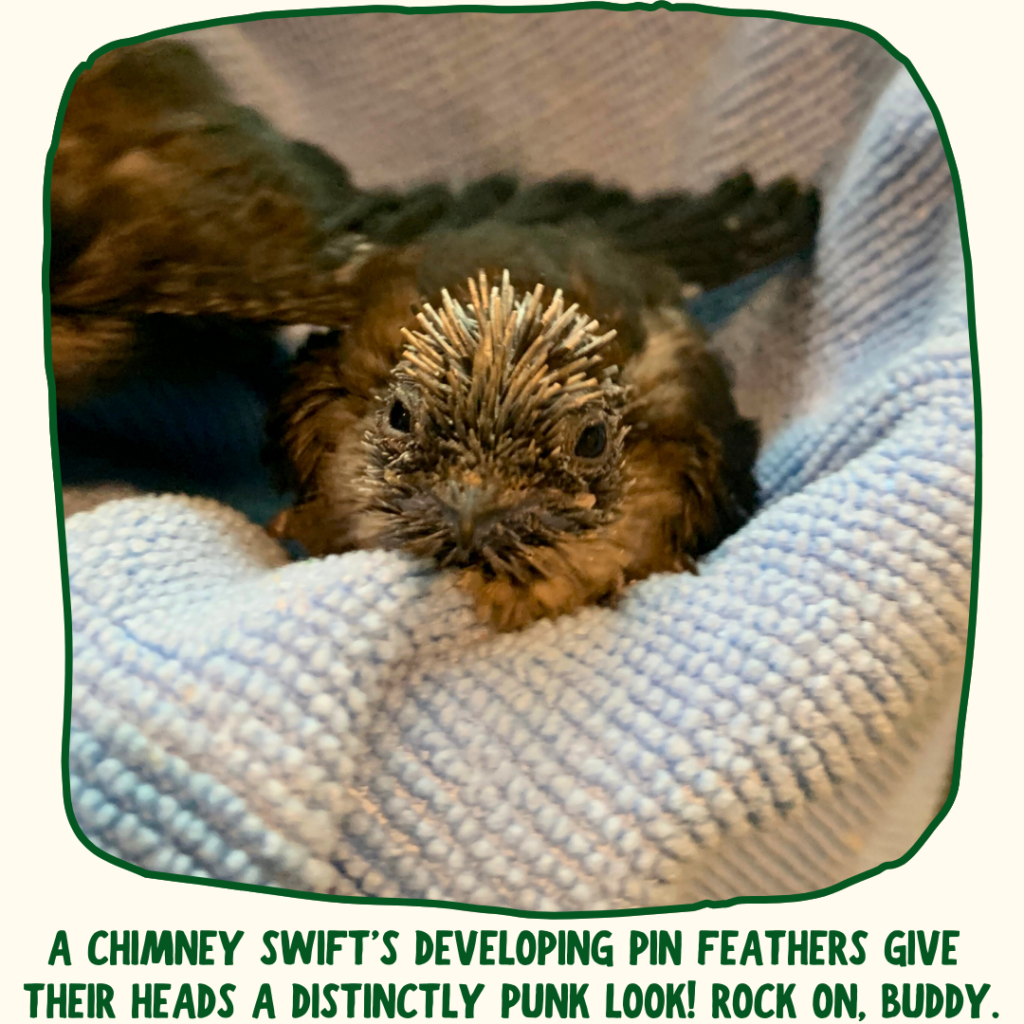
Chimney Swifts are a unique species to rehabilitate because they eat flying insects almost exclusively. They are what we call aerial insectivores, eating “on the wing,” or in midair, and will never stop to perch somewhere with a meal. In fact, they cannot perch! Chimney Swifts have pamprodactyl feet, meaning all four toes face forward. They can only hang from vertical surfaces – hence their attraction to chimneys in a world increasingly devoid of their natural choice of hollow old-growth trees and caves. 🌳
All of this interesting natural history is to say: Chimney Swifts need to be fed a LOT of insects in care, and will never be able to fully self-feed the way our passerine (perching) songbird patients will. We must continue to feed them, every 30 minutes, from rescue through their release.
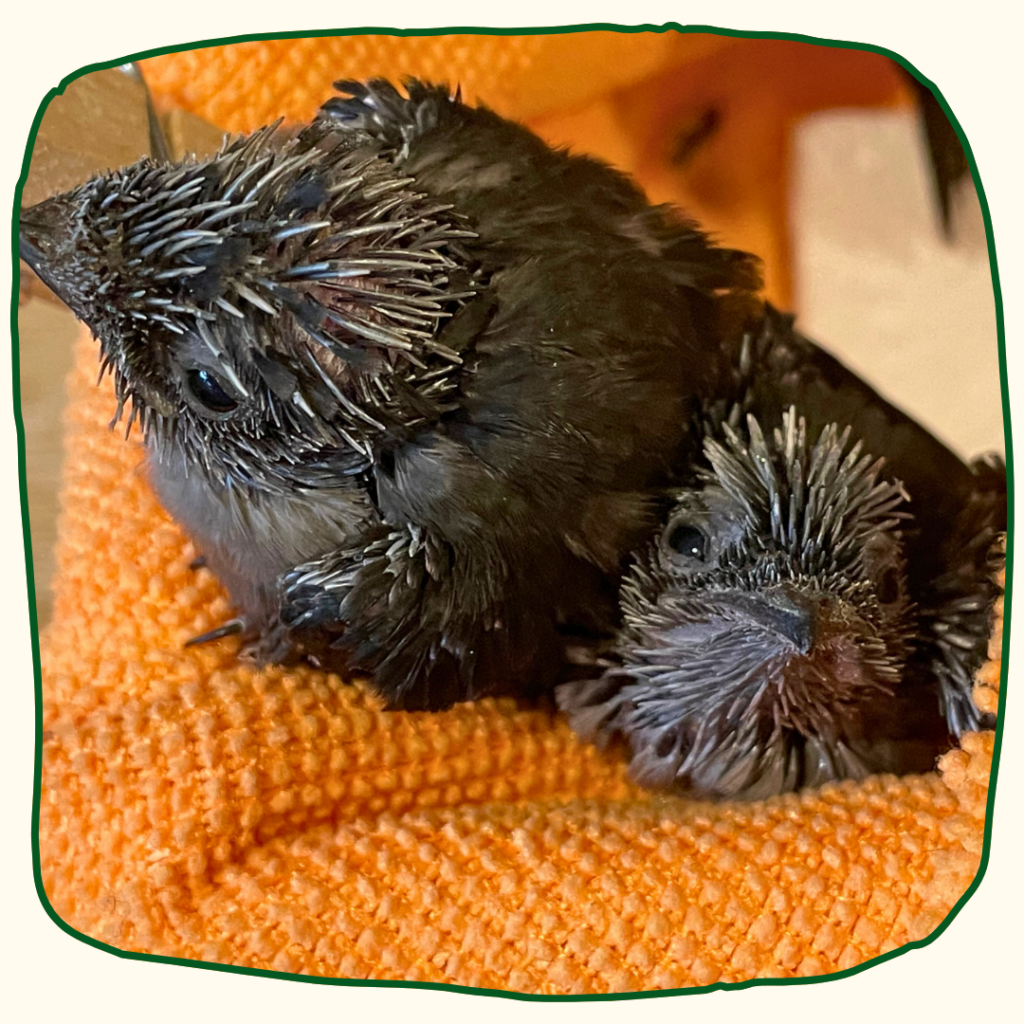
When 24-729 and her four nestmates came in for care, our staff set them up inside one of our specialized nursery incubators to keep them warm. We then rehydrated them with subcutaneous fluid injections and fed them with a delicious concoction called an “insect slurry.” We’ll spare you the details of how our staff makes that. 🤣 Once they were more energized, we began switching them to eating pieces of – and eventually whole – mealworms. 🐛
In our busy season, it’s typical for RWS patients to plow through 40,000 mealworms every single week! Unlike the typical American household, much of the Sanctuary’s annual food budget is allocated towards mealworms. One order of 40,000 typically costs between $250-300 depending on the time of year. 😲
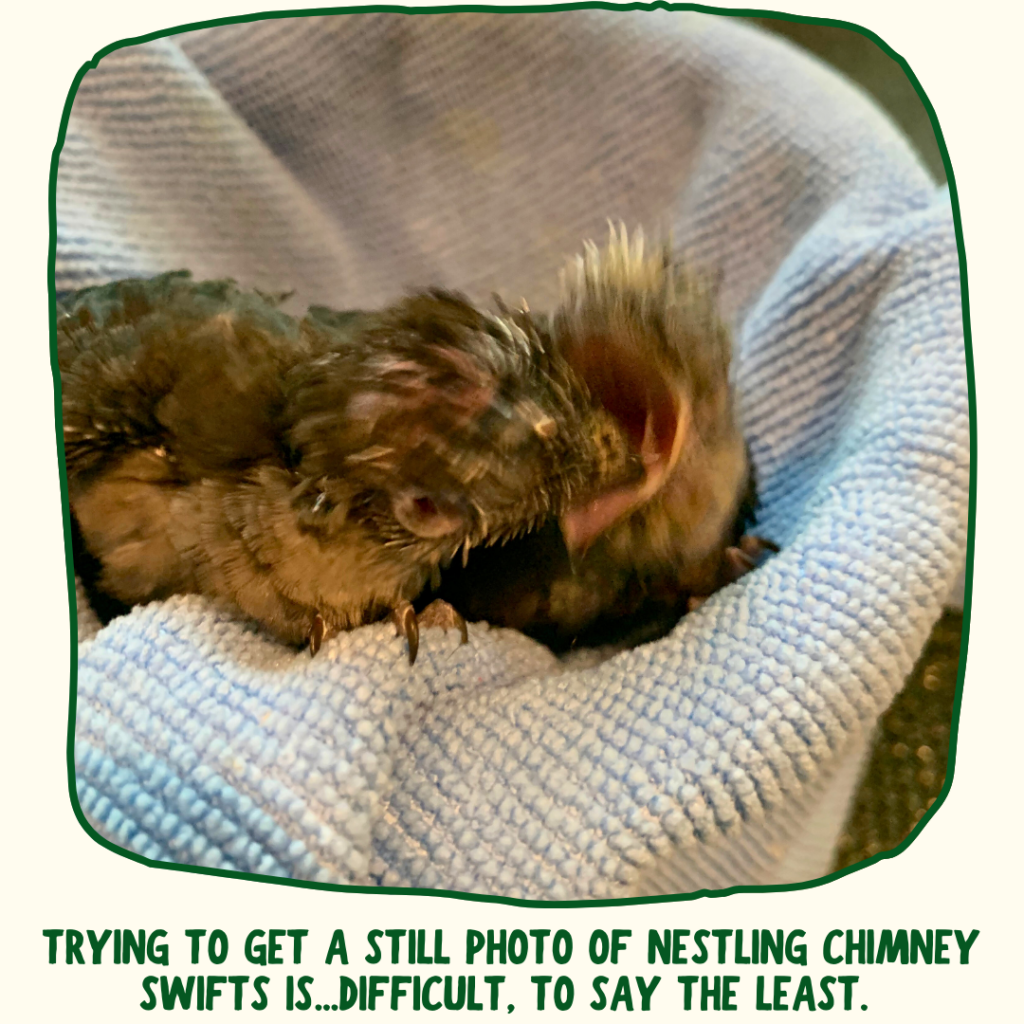
Chimney Swifts are colonial birds, and luckily, these five patients have joined our own mini colony of orphaned swifts. Just listen to the charming, somewhat spooky cacophony they make when it’s time to eat! Yes, this is what we hear every 30 minutes. All day long. Headphones are indeed a wildlife rehabilitator’s best friend.
Patient 24-729 and the rest of this season’s Chimney Swifts have arrived just in time, because we just completed our Chimney Swift flight enclosure! Not only do these birds need to eat mid-flight, but they fly very long distances. They migrate all the way to South America each fall! The octagonal enclosure encourages sustained, circular flight, allowing swifts in care to build up the stamina and endurance they will need to be successful post-release. As far as we are aware, we have the only Chimney Swift-designated flight enclosure in Virginia! Given these birds are facing decline due to habitat loss, we look forward to providing excellent care and a specialized enclosure for years to come.
We are grateful to the Arthur L. and Elaine V. Johnson Foundation for their support in funding this brand new enclosure, and we thank our very own Jeff Wilbur for constructing the whole thing himself. Jeff is a superhero at RWS!
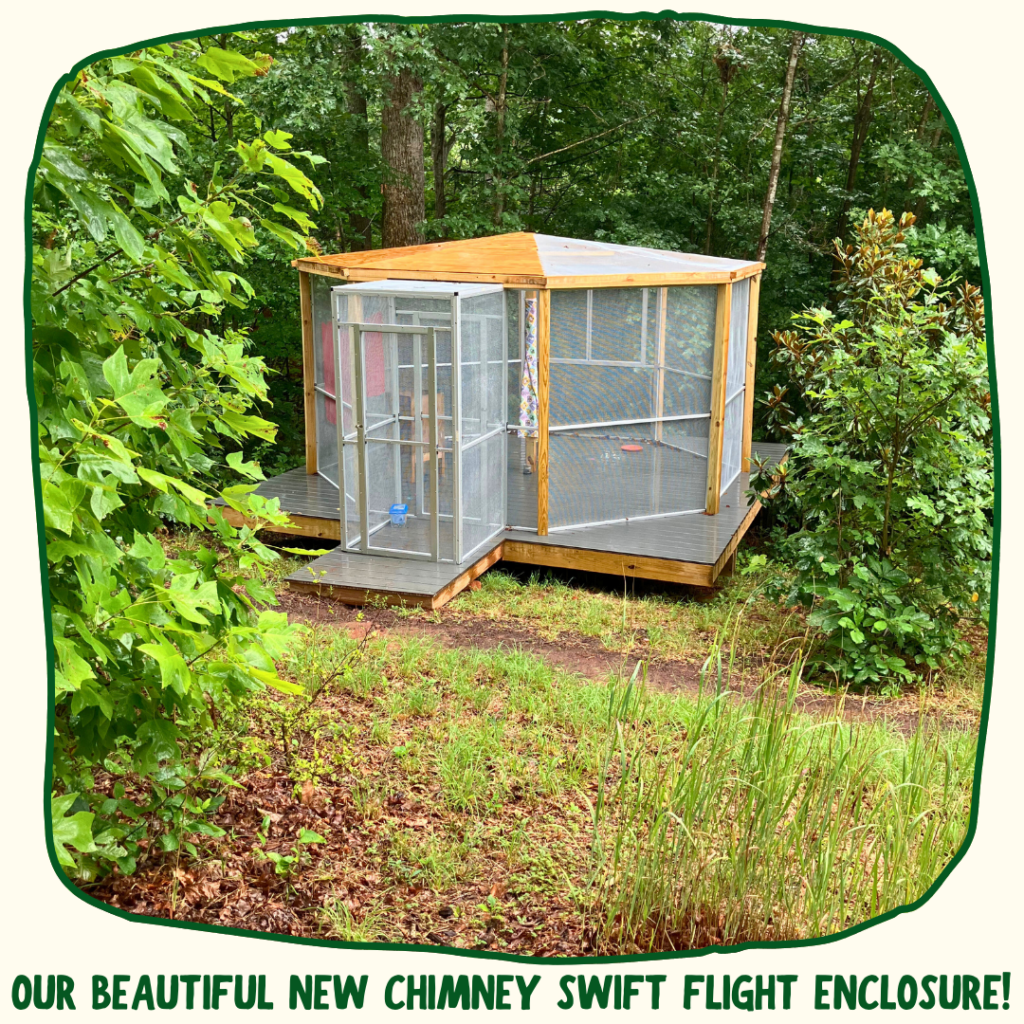
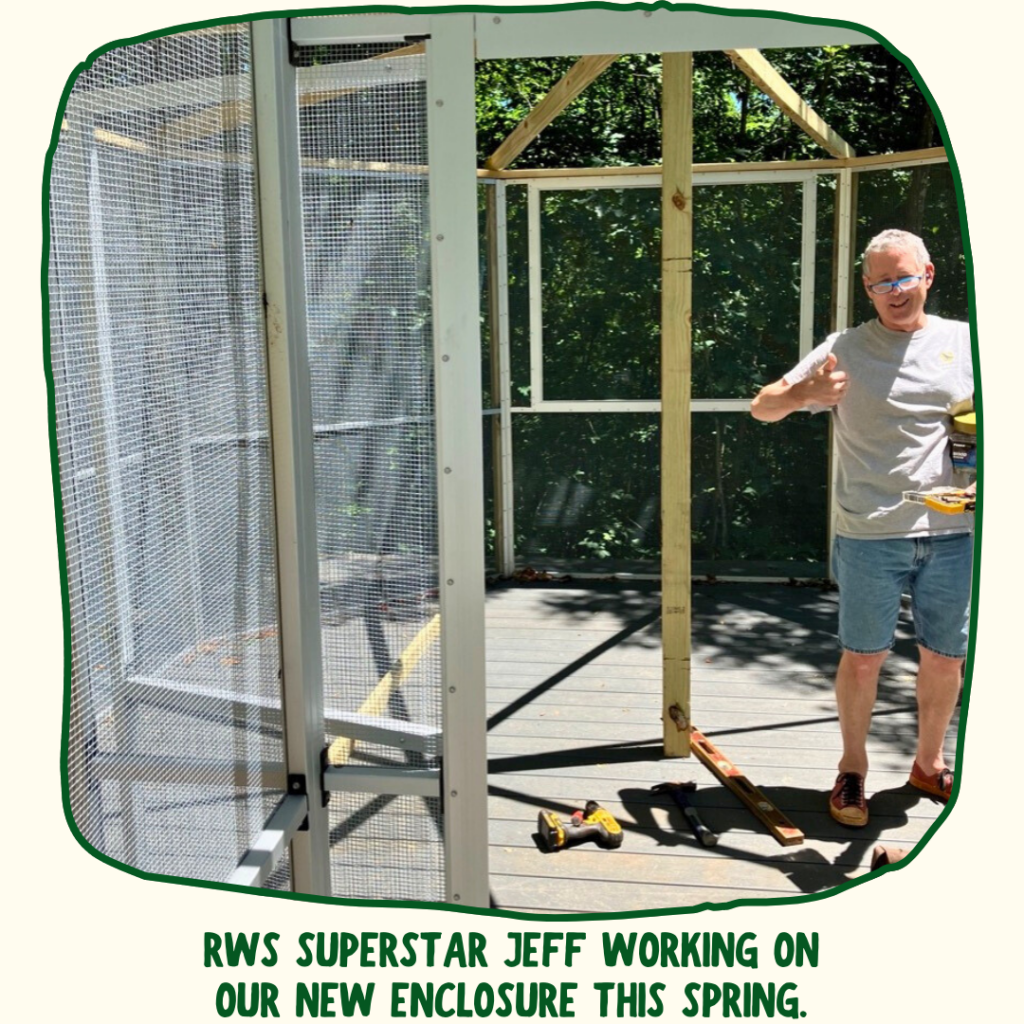
Once their feathers have fully grown in and they’ve passed flight testing, 24-729 and her nestmates will be ready for release into local colonies. They’ll start their long journey to South America shortly thereafter! Until then, though, we’ll savor their trademark chatter at the Sanctuary and enjoy gazing at the acrobatic wild swifts we get to see every night on our evening commutes.
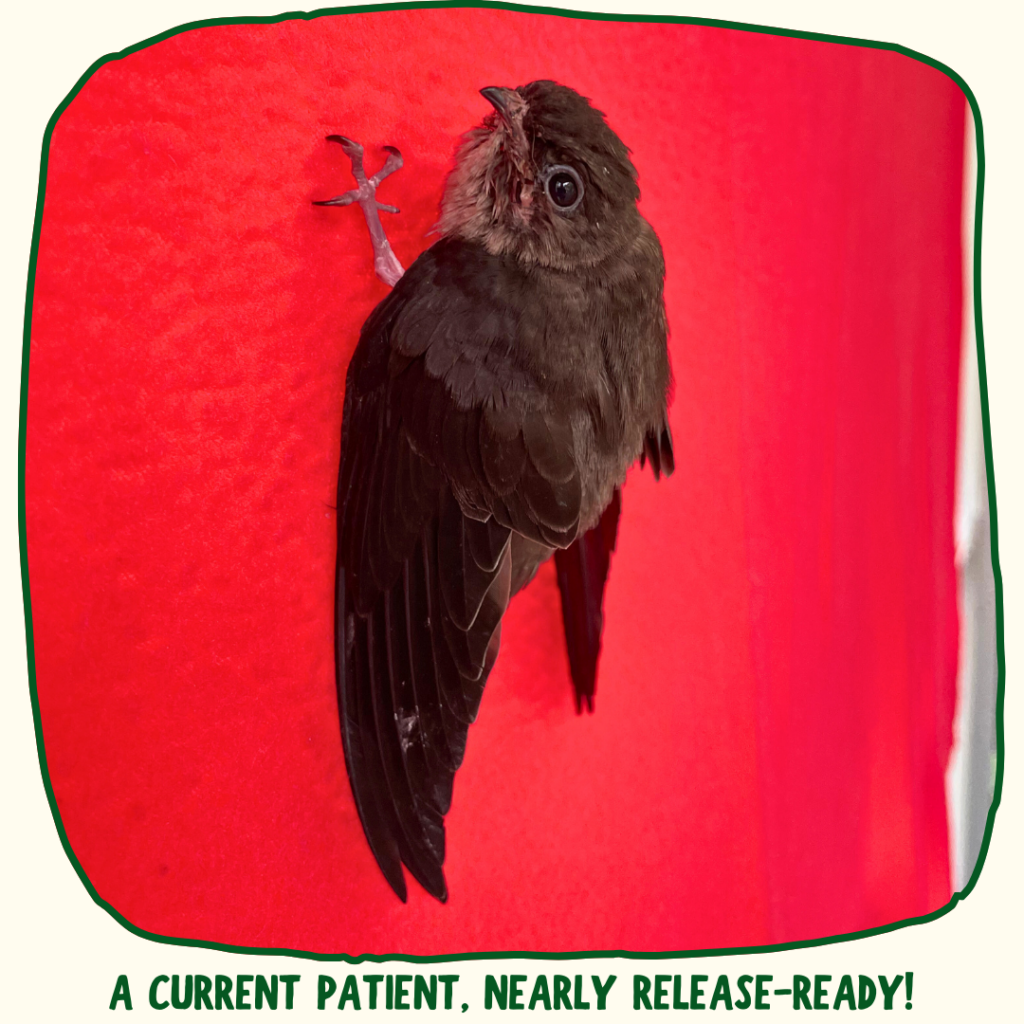
A big ch-ch-chittering cheers to Virginia’s most punk rock native bird!
July 22, 2024
Published:
Be the first to comment!